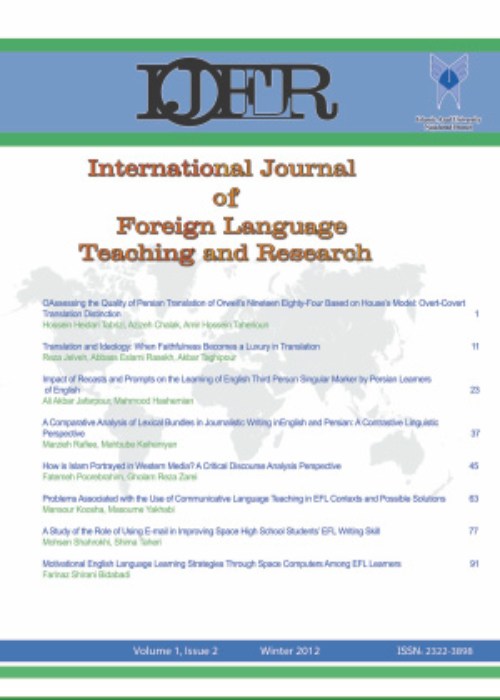Politeness Strategies Used by English Native Speakers, Persian Native Speakers, and Iranian EFL Learners in the Production of Refusal Speech Act
A key aspect of effective communication is the use of appropriate speech acts. This study investigated the difference between Persian native speakers, Iranian EFL learners, and English native speakers in terms of the speech act realization of refusal and uncovered the reasons for which, each group of participants produced the refusal speech act regarding the Rapport Management Approach. To this end, 100 (male and female) intermediate EFL learners were chosen based on their performance on the Oxford Placement Test. 100 Persian native speakers among 140 students studying Persian literature at Najafabad Azad University were randomly chosen and they were asked to fill out a Discourse Completion Test (DCT), consisting of 12 situations realizing the refusal of four types of eliciting acts. Additionally, 12 English native speakers (6 males and 6 females) were also contacted through emails to participate in the study. The English DCT was given to two groups of participants and the Persian DCT was given to Persian native speakers. The politeness model proposed by Brown and Levinson (1987) was adopted to show the differences between Iranian EFL learners, English native speakers, and Persian native speakers who were participants in this study. By using the SPSS software program, the results indicated 'negative' strategies as the most frequent ones and highlighted the significant role of face, social rights, and obligations in interaction. The findings revealed that among politeness strategies 'negative' strategies are the most frequent ones. The results also indicated that English native speakers use negative politeness strategies more than Iranian EFL learners. Therefore, English native participants regard themselves as having rights and obligations about other people more than Iranian EFL learners. The results of this study highlighted the importance of pragmatic knowledge in international communications.
- حق عضویت دریافتی صرف حمایت از نشریات عضو و نگهداری، تکمیل و توسعه مگیران میشود.
- پرداخت حق اشتراک و دانلود مقالات اجازه بازنشر آن در سایر رسانههای چاپی و دیجیتال را به کاربر نمیدهد.


